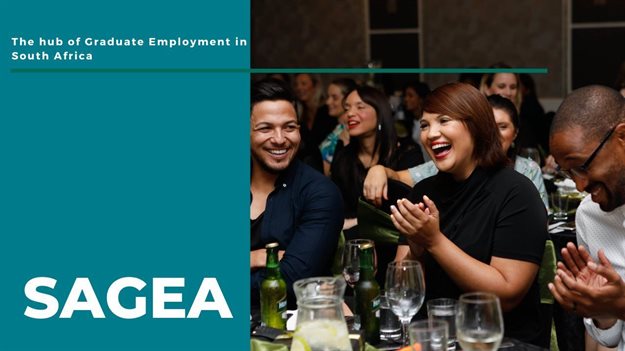
Top stories






More news


Marketing & Media
Ads are coming to AI. Does that really have to be such a bad thing?














For many years prior to the pandemic, there was promise as we saw companies toying with digital strategies – making use of social media, podcasts, blogging, vlogging – but it never really took off properly. For those that took the trouble to measure the impact of their digital strategy, we know that it worked but, by and large, return on investment was difficult to measure as it’s not just one channel that convinces a student to make an application.
When our members called out for help in March 2020 – we finally had the opportunity to showcase all the cool new and emerging digital technologies that are available to support creating networks and experiences for graduates.
In partnership with 25 Universities, we launched the Sagea VirtualGradExpo in May of 2020. And what an exciting journey it took us on! Granted, the learning curve was huge and hard for all of us, but we took the concept of online chat functions such as WhatsApp and Messenger and off we went – creating a bespoke solution for South Africa. We learned many tough lessons at our first digital career fair, including:
But we got through it and days two and three just got better and better. Over the period that our solution was available to students, we had more than 40,000 students engage with our platform and as we moved towards measuring the return on investment, we had one employer tell us they hired 33 grads from their two days online with the students. How awesome is that?
There are some reality checks that you need to think about when deciding to build skills and contribute to our economy by putting our students at the centre of your future success:
We know from two decades of research and insights into the journey of successful graduates that work experience makes all the difference to their preparation for the world of work – whether they pursue entrepreneurial ventures or end up working for an employer. There are two key considerations when it comes to offering work experience: can you scale this and can you create meaningful experiences for more than just the top 10% of students?
We, at Sagea, are embarking on our own talent-building journey. We intend taking 1,000 students in the next 6-8 months through an experiential journey to demonstrate new and emerging careers in South Africa. Our first cohort of 500 students will join us in July. Deploying leading-edge technology, we hope to take them on a journey to build competencies in critical thinking, creativity, communication and collaboration, capped with building context of how to solve some of the critical business problems in our economy.
This forms part of a three-year programme – starting with building competencies and then overlaying attributes needed in the world of work. We all know that competence is important but attributes such as initiative, curiosity, resilience, social and cultural awareness will truly differentiate our young talent for the future.
So, be bold and invest in opportunities to build your own talent...
References
Established as a not-for-profit professional association in 2004, Sagea has become the hub of graduate employment in South Africa. We represent over 340 individuals across more than 200 organisations, ranging from corporate employers to higher-education institutions to solution providers and professional organisations.
Newcomers to the industry, as well as the country’s top talent management specialists, benefit from belonging to Sagea where they can personally interact with one another to share ideas and experiences. We provide our members with access to the latest graduate employment insights, trends, global best practice and resources to help them attract and retain the best talent for their businesses.
We believe in the power of sharing knowledge and human connection to advance graduate employment and elevate the careers of those involved. Making use of synergies, resourcefulness and insight, we have become the authority in the field of graduate employment in South Africa.
Cathy Sims
Email: az.gro.aegas@smis.yhtac
Phone: 087-3797163 / 083-2977740
Website: www.sagea.org.za